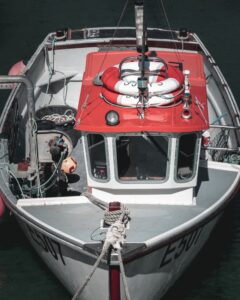 If you’re a boat owner looking for a few buying tips for marine glass, you’ve come to the right place. Whether you’re in the middle of a restoration project or looking to upgrade, it doesn’t matter. Choosing the right glass material for your boat is important to keep it seaworthy. So without further ado, let’s jump right into it!
If you’re a boat owner looking for a few buying tips for marine glass, you’ve come to the right place. Whether you’re in the middle of a restoration project or looking to upgrade, it doesn’t matter. Choosing the right glass material for your boat is important to keep it seaworthy. So without further ado, let’s jump right into it!
What Should You Look For?
There are a lot of things you have to look for when buying marine glass. The most important thing, though, is for you to understand that this type of glass is different from what you know. All the materials and processes used to make this type of glass differ from those created for land transportation. These windows and windshields are specifically designed to withstand marine environments.
During your research, take note of several important factors. But perhaps the most vital one is the material used to make the windows themselves. The material will have a say in how durable the window will be over time. This is because several material types are better at withstanding marine elements. And with varied durability, comes varied pricing.
Here’s more. According to Marine Fabricator, you have to look at six things when buying marine glass.
- Clarity: What’s the use of a boat window or windshield if you can barely see through it? One of the best perks of the boating lifestyle is that you get to enjoy nature’s wonders that you won’t find on land. Majestic islands, amazing wildlife; as a boater, you know what the marine scenery is like. Having a clear window means you can enjoy it all and will be able to see where you’re going.
- Scratch resistance: Even the clearest glass in the world is useless if it’s easily scratched. Plus, how annoying can it get when your boat windshield or window is full of scratches? It can drive you crazy trying to deal with that. Scratch resistance is the hallmark of durable material, so make sure to look for that.
- UV resistance: Out on the water, you have no shade. You’re at the mercy of the sun and its punishing UV rays. You’d do well to choose a material that at least blocks some of these rays, if not, all of them.
- Stain/chemical resistance: Stains can drive anyone crazy, more so if it’s almost impossible to get them out. You will want to have something that will resist stains and is easy to clean. Also, chemical resistance means it must be durable enough to withstand deterioration and damage from certain chemical compounds.
- Flexibility: You will need flexibility in your windows and windshield to make sure they fit perfectly. As a result, installing glass will be very easy! Always remember that boats tend to feature a lot of curves and not many straight lines. Short of ordering something that’s very custom-fit, you can just opt for something that will bend without breaking.
- Cost: Are you willing to spend a bit of a premium now, so you won’t have to deal with problems later? The best options will always come with heftier price tags, so always remember that.
Related: Boat Windshield Repair: DIY or Hire a Pro
Different Materials
There are four popular marine glass materials on the market today. Each of them have their own pros and cons, which you must be aware of. Here is a quick look at each.
- Tempered glass: This material is able to resist chips, scratches, stars and “bulls-eyes”, making it very durable. Tempered glass is also light weight and shatters into harmless cubes when broken, eliminating the hazards of flying shards of sharp glass during accidents.
- Vinyl & polyester composite: This composite is durable and flexible enough to follow your boat’s contours. Because of this, they also stay tight against the windowsill, allowing for perfect sealing. And the biggest perk can’t be overstated: the flexibility makes installation a lot easier. No more mildew buildup!
- Clear-pressed polished coated vinyl: This type of material can be rolled back without much hassle, which makes it perfect for boat tops. Some products even come with scratch-resistant coating to keep those pesky scratches away from the surface. These qualities are likely why this is a popular choice for a lot of boat owners.
- Polycarbonate: Do you want something that’s almost unbreakable? This is the one you should go for. This material, from semi-rigid plastic, will handle everything that you throw at it, and more. And it can also come with scratch-resistant or UV coatings, depending on your choice.
- Acrylic: Another semi-rigid material, acrylic isn’t as unbreakable as polycarbonate. But it does make up for it with its excellent visibility. That doesn’t mean acrylic isn’t strong, though: it’s still pretty tough to break. The only thing that might scare you off is scratch resistance, or lack thereof.
Related: Best Type Of Material For Aftermarket Boat Windshields
 Which One Should You Pick?
Which One Should You Pick?
At the end of the day, the choice falls entirely upon you. Make sure to pick a material that you won’t have trouble with before, during, and after installation! Is it affordable enough to fit within your budget? Is it easy enough to install? And lastly, will it withstand the rigors of boating? All these questions will help you narrow down your choices.
If you still have trouble picking, however, let us do that for you! Talk to us today at Peninsula Glass and we’ll be able to help you with your choices.
